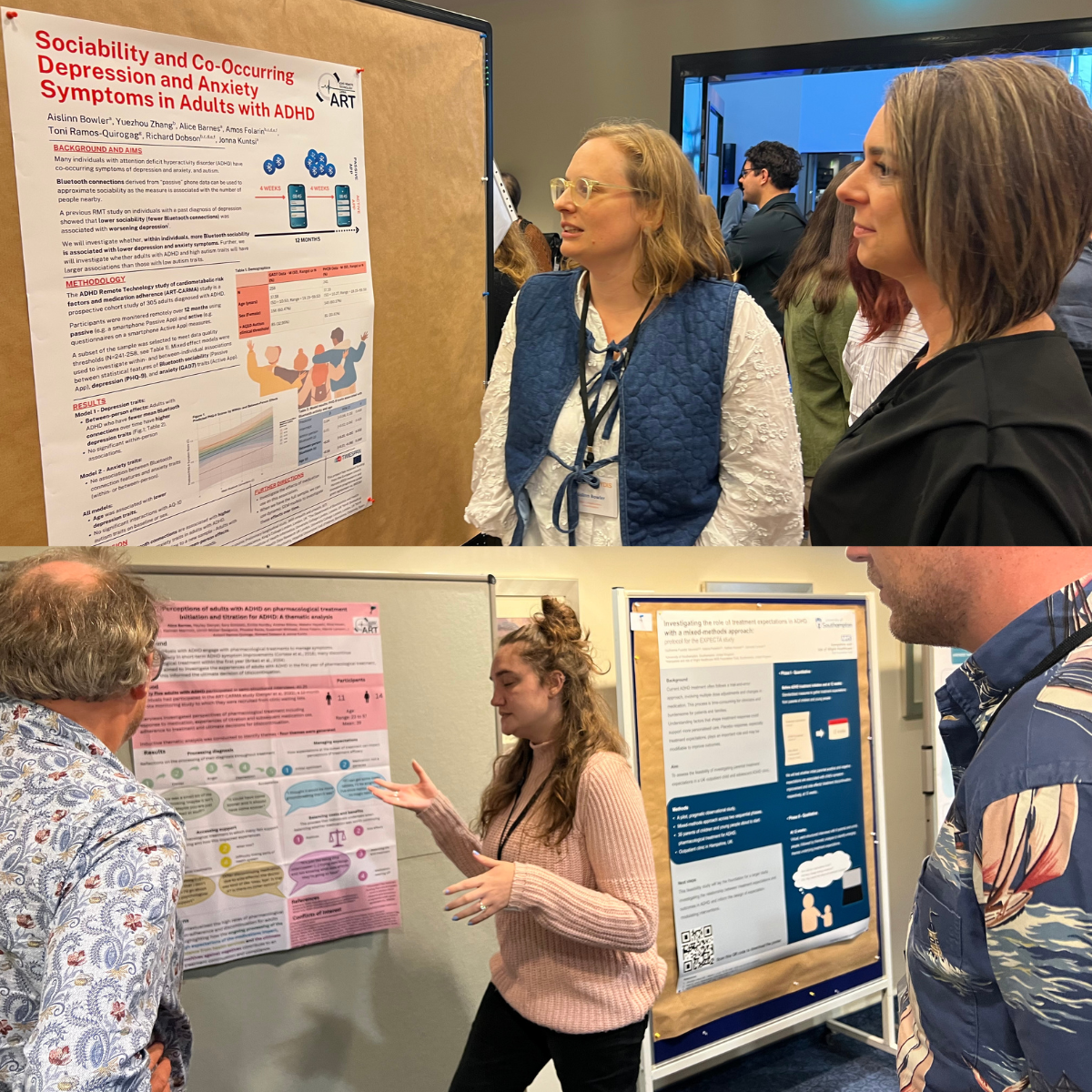Last week, the ADHD Remote Technology (ART) team were fortunate enough to attend the 36th EUNETHYDIS (the European Network for ADHD) meeting in Bonn, Germany. The meeting was open to members of the network and up to two Early Career Researchers (ECRs) from each member’s team, as well as some guests. Postdoc Dr Aislinn Bowler and I, Alice Barnes (3rd year PhD student), were invited by ART PI Professor Jonna Kuntsi – who is also Co-Chair of EUNETHYDIS – as her group’s ECRs. It was a privilege for us to present our early findings from the ART-CARMA study, as we have several papers now under review and in preparation.
ART-CARMA has two main aims: using remote measurement technology to obtain real-world data from the daily lives of adults with ADHD to explore (1) the extent to which ADHD medication and physical activity, individually and jointly, may influence cardiometabolic risks for adults with ADHD and (2) adherence to pharmacological treatment and its predictors and correlates. Across two data collection sites, ours in the UK and the second one in Spain led by Professor Toni Ramos, we successfully recruited 305 adults with ADHD into the study from adult ADHD clinic waiting lists. Each participant is remotely monitored with a wide range of active and passive measures for 12 months, starting from an initial off-medication period and through a subsequent naturalistic (real world) on-medication period.
In our poster presentations – as well as in an overview talk given by Prof. Kuntsi – we presented initial results which Dr Bowler, Dr Yuezhou Zhang and I have conducted on the following topics:
- The impact of ADHD medication on ADHD symptoms, mood, substance use, physical activity, sleep and physical measures such as weight, in the first 3 months of pharmacological treatment.
- Qualitative insight into experiences of adults with ADHD with pharmacological treatment, benefits, challenges and reasons for (dis)continuing treatment.
- Most frequently reported side effects of ADHD medication, which side effects are commonly experienced together and how self-report of side are corroborated by physiological measurements.
- Medication usage patterns for adults with ADHD and predictors of medication adherence.
- The co-occurrence of sociability and depression and anxiety in adults with ADHD.
Through our research, we hope to address these crucial clinical questions (and many more) and inform clinical practice going forward. This, of course, is most feasible, and meaningful, when done alongside expert clinicians. We are fortunate to have many adult psychiatrists specialising in ADHD involved in ART-CARMA, one of whom, Dr Ulrich Müller-Sedgwick was present at the EUNETHYDIS meeting. He had this to say about the initial findings that are emerging from the ART-CARMA project:
“I was privileged to attend the EUNETHYDIS conference in Bonn, where we discussed the latest data from ADHD research projects and their clinical implications. In my opinion, the observational ART-CARMA study will improve our understanding of medication adherence and shared decision making when prescribing ADHD medication.”
The EUNETHYDIS meeting allowed us to share our initial findings from the ART-CARMA study, which were well received, discuss these preliminary results with experts in the field, which was incredibly insightful, and identify future avenues for applying our data to clinically relevant questions, which was exciting. Data collection for the ART-CARMA study finishes in just a few months, so please stay tuned as we start to publish our work!
This blog was written by Alice Barnes from KCL.
